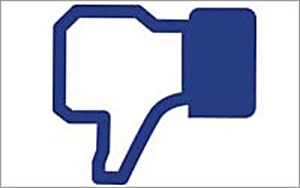
In the coming days and weeks, Facebook is telling brands and other Page owners to expect a noticeable dip in “like” counts. The likely decline in social currency will result
from more vigorous efforts to remove inactive accounts, the social giant said this week.
“We’re updating the way Page likes are counted by removing memorialized and voluntarily
deactivated accounts from Pages’ like counts,” the social giant explains in a blog post. “It’s important to remember, though, that these removed likes represent people who were
already inactive on Facebook.”
Facebook already filters out likes and comments generated by deactivated or memorialized accounts from individual Page posts. Like Google and its
all-powerful search algorithm, Facebook can reshape marketers’ fortunes with seemingly small changes to its platform.
advertisement
advertisement
The social giant is particularly prone to adjusting its News Feed
algorithm, which can reduce the value of a brand’s like count, and thus lower the organic reach rates of its Page.
For example, Facebook recently began giving greater consideration to
posts’ timeliness and activity-based relevancy. As a result, users have been more likely to see “trending” stories in their News Feed, but only after a “friend” expresses
interest in such a story.
Despite the frequent changes, Facebook has never been more popular among brands. In fact, Facebook adoption is virtually 100% among the top global brands, according
to social analytics start-up Simply Measured.
On average, brands are posting on Facebook about 10 times per week, while 65% of the brands post an average of five times a week or more,
according to Simply Measured.
Along with likes, Mark Zuckerberg has expressed an interest in giving users new ways to express themselves. “There are more sentiments that people want to
express than just positivity,” Facebook’s founder and CEO said during a town hall discussion late last year.
For instance, “a lot of times people share things that are sad in
their lives, or are tough cultural or social things, and often people tell us they don’t feel comfortable pressing 'like'," Zuckerberg explained.
Despite a lot of internal dialogue,
Zuckerberg said Facebook was not quite ready to roll out reaction buttons that allow users to “empathize, or express surprise or laughter,” but the company is moving in that direction.